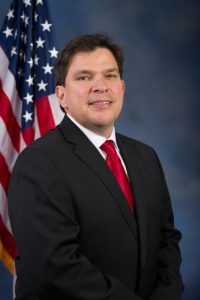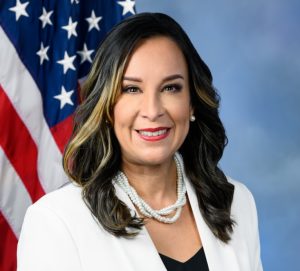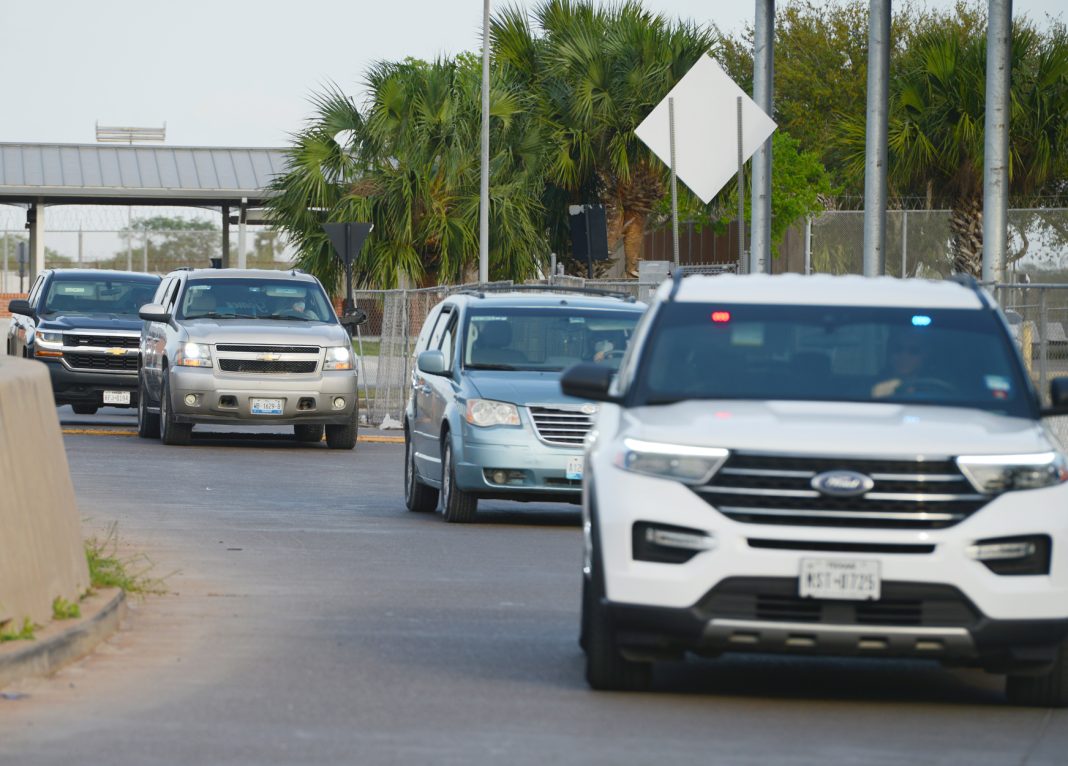You have this demand, and, basically, where there is that kind of demand and there is the ability to pay for it, people will find ways to supply that demand.
While the fate of the man suspected of selling a weapon used in the fatal Matamoros kidnapping of four U.S. citizens unravels before a federal court, the problem of gun smuggling underscored by the arrest will likely continue.
Roberto Lugardo Moreno will continue to be held under federal custody after he waived his right to a detention hearing on Thursday where a federal judge in Brownsville would have determined if the defendant would pose a risk to the community or a flight risk if released on bond.
Lugardo Moreno was arrested on two charges over the weekend after a gun he purchased in 2019 ended up in the hands of the Gulf Cartel faction that kidnapped four U.S. citizens and murdered two of them in early March.
The gun he is accused of selling was recovered by Mexican authorities after the March 3 kidnappings of Shaeed Woodard, Zindell Brown, Eric Williams and Latavia McGee. Woodard and Brown were killed while Williams and McGee survived.
The investigation carried out by Homeland Security Investigations and the Bureau of Alcohol, Tobacco, Firearms and Explosives found that Lugardo Moreno sold weapons to the cartel. According to the criminal complaint, he was paid $100 for the weapons he bought in 2019.
Lugardo Moreno now faces two charges for his role in gun smuggling and for the conspiracy.
“It’s all about the economics,” Scott Stewart, a security expert, said Monday.
Stewart is the vice president at Torchstone Global and spent ten years as a special agent with the U.S. Department of State’s Diplomatic Security Service.
“You have this demand, and, basically, where there is that kind of demand and there is the ability to pay for it, people will find ways to supply that demand,” Stewart explained.
Gun smuggling is the consequence of established drug routes that run through the U.S., the security expert said. Guns typically run south of the border while money, people and drugs are smuggled into the U.S.
“They have a lot of cash in the U.S. that they need to get back into Mexico, right … but they can do things here, like buy guns with that cash,” Stewart added. “And that’s a way to launder some of that cash or convert some of that cash into other goods.”
The news of the gun in Mexico used in the murder of U.S. citizens sourced to the U.S. came as no surprise to one Valley congressman.

“We have seen America’s gun violence epidemic is not confined within our country,” U.S. Rep. Vicente Gonzalez said via a statement shared Wednesday. “We cannot continue to let innocent lives be lost.”
Gonzalez, a Democrat, voted last year for the bipartisan Protect Our Kids Act that included new federal offenses for gun trafficking and straw purchases, he noted. The bill only cleared the House but failed to become law.
Republican Congresswoman Monica De La Cruz said she was troubled by the case.
“Congresswoman De La Cruz is deeply troubled by these murders and asks all South Texans to pray for the victims and for the killers to be jailed and prosecuted,” a spokesperson for De la Cruz said via a statement on Monday. “She will continue closely monitoring this case and withhold commenting until all the facts are presented and confirmed.”
Stewart believes that while demand steers the problem forward, penalties could provide a significant hindrance.

Gonzalez agreed.
“A lot more needs to be done in an effort to prevent American arms from going into Mexico,” Gonzalez’s statement added. “We need to promote responsible gun ownership while severely punishing those who traffic in guns which lead to incidents like what we just saw in Matamoros.”
Stewart explained cartels typically work with low-level networks to purchase their weapons, paying as low as $100 for the transaction, as they did with Lugardo Moreno. He believes the investigations should prioritize those placing the orders.
“It would be good to go after the organizers, the people who are actually paying the money, the people who are putting together these larger shipments, and then, you know, taking them across the border, the smugglers,” Stewart said.
The proximity to Mexico and the vast financial resources of the cartels make the U.S. a convenient source; but, even if the border was “hermetically sealed” and guns would no longer be trafficked from the U.S., Stewart postulated, the demand would be fulfilled by other countries.
“We can try to stem it,” Stewart said, adding, “but really, as long as that demand is there, and as long as the cartels have the money to be able to afford these guns, it’s going to be very, very difficult to stop the flow.”




